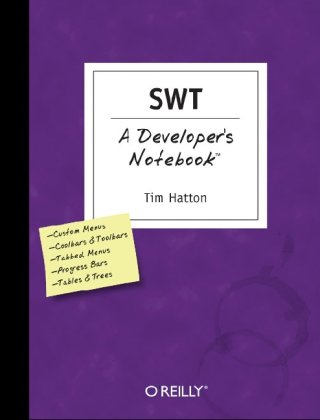

Most ebook files are in PDF format, so you can easily read them using various software such as Foxit Reader or directly on the Google Chrome browser.
Some ebook files are released by publishers in other formats such as .awz, .mobi, .epub, .fb2, etc. You may need to install specific software to read these formats on mobile/PC, such as Calibre.
Please read the tutorial at this link: https://ebookbell.com/faq
We offer FREE conversion to the popular formats you request; however, this may take some time. Therefore, right after payment, please email us, and we will try to provide the service as quickly as possible.
For some exceptional file formats or broken links (if any), please refrain from opening any disputes. Instead, email us first, and we will try to assist within a maximum of 6 hours.
EbookBell Team

4.8
94 reviewsThe Eclipse platform continues to gain tremendous popularity as both a Java IDE and a Java platform for application programming. One of the core underpinnings of Eclipse is SWT, the Standard Widget Toolkit. This set of components can be used to develop graphical user interfaces in Java,and offer a native-code alternative to Java's Swing and AWT components. Incorporating the look and feel of whatever platform the code is run on, SWT offers a lightning-fast approach to building GUIs, all of which actually look like they belong on the platform on which they are run.
But you already know what you want to do--so wading through the basics of user interface design, graphical components, and what a button does is simply a waste of time. Enter SWT: A Developer's Notebook . In typical Developer's Notebook style, you'll learn how to take SWT out for a spin, make it work for you, and turn it upside down, all without wasted words or space. Each lab in this notebook details a specific task; you can read from the first page to the last, look up just what you need to know, and even squeeze this book into your laptop bag as a quick reference when you forget how to create a multi-tabbed view.
This book covers: